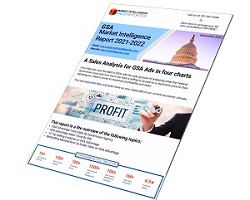Is it possible to offer Open Market Items in Conjunction with what is awarded on the GSA Schedule Contract?
In certain instances, the government may seek items not covered by your GSA Schedule contract when making orders, referred to as Open Market Items.
- What Do Open Market Items Refer To?
- Is It Permissible for a Contracting Officer to Include Open Market Items in an Order?
- Is it Possible to Include Open Market Items in a GSA Schedule Contract?
- What to Do When Encountering an Open Market Item in an RFQ
- How to Report Sales of Open Market Items
- Exploring Open Market Items within GSA Contract Orders in 2024
- Understanding Open Market Items
- Navigating the Inclusion of Open Market Items
- Reporting Open Market Sales
- Conclusion
Frequently asked questions include: Is it permissible to supply federal agencies with products and services that aren’t listed in your approved price list? Can you provide a comprehensive solution to government customers, even if it involves selling Open Market Items? Let’s explore these dilemmas.
What Do Open Market Items Refer To?
According to FAR 8.402(f), Open Market Items are defined as items that are not part of the Federal Supply Schedule. When a federal customer orders products and services not covered by your approved GSA Schedule contract, they are essentially procuring Open Market Items.
Examples of Open Market Items include:
- Tools (e.g., screwdrivers, power backup units)
- Supplies and accessories (e.g., cables, flash drives)
- Materials (e.g., coatings, insulation)
- Other direct costs (ODC).
There are no specific restrictions on what can be considered open-market items. They can encompass a wide range of products, services, and project-related expenses.
Is It Permissible for a Contracting Officer to Include Open Market Items in an Order?
According to FAR 8.402(f), a contracting officer has the authority to incorporate Open Market Items into BPA orders, task orders, or delivery orders, provided that ALL of the following conditions are satisfied:
In essence, a federal agency can lawfully request items not covered by the Federal Supply Schedule, but they must adhere to all the procurement process requirements.
Is it Possible to Include Open Market Items in a GSA Schedule Contract?
Consider this scenario: you come across an RFQ or solicitation on eBuy, and upon review, you notice that, in addition to the relevant items covered by your GSA contract, there’s an extra product, an Open Market Item. Passing up on such an opportunity might seem like a mistake, especially since FAR 8.402(f) explicitly allows procurement officers to include such items in the order. However, it raises the question: can you submit quotes for Open Market Items on eBuy?
The answer is yes, and there are several options available:
- For items below the Micro-Purchase Threshold (MPT) of $10,000, there are no restrictions; they can be included in the order without any special requirements, as per FAR 8.402(g).
- Items below the Simplified Acquisition Threshold of $250,000 must adhere to all the relevant regulations (as mentioned above). If all the necessary criteria are met, Open Market Items can be incorporated into the order.
- For items exceeding the Simplified Acquisition Threshold, the procurement officer may need to issue an additional RFQ. There is no upper limit on the dollar value of Open Market Items that can be included in the order.
What to Do When Encountering an Open Market Item in an RFQ
First and foremost, there is a reliable indicator to determine whether Open Market Items are permitted in a solicitation. If mandatory FAR clauses like FAR 52-212-4 are present in the solicitation, it indicates that Open Market Items are allowed.
We recommend initiating contact with the procurement officer specified in the solicitation to inquire about this opportunity. Communicate that you can fulfill the order, but some components of it fall under the category of Open Market Items, which you will include in your quotation.
It is crucial to distinctly label each Open Market Item in both your written quote and the actual invoice. This ensures absolute clarity for the soliciting agency regarding which items in the order are designated as Open Market Items.
Another option available is to collaborate with another GSA contractor to jointly meet the requirements of the Federal Supply Schedule. However, it’s important to note that to sell Open Market Items to the GSA through this method, you will need an authorized agreement with that contractor.
How to Report Sales of Open Market Items
GSA contractors who sell Open Market Items should refrain from including Open Market Sales in their quarterly reports. This is because Open Market sales are considered non-GSA transactions, similar to subcontracting or using alternative contracting vehicles by the agency (such as FAR Part 14, FAR Part 15, etc.), which are also not considered reportable MAS sales.
Exploring Open Market Items within GSA Contract Orders in 2024
Under a GSA Schedule Contract, vendors offer a range of products and services pre-negotiated with the government, simplifying the acquisition process. However, what happens when a federal agency requires items not listed on a vendor’s GSA Schedule? In such cases, Open Market Items come into play, offering a solution to meet the unique needs of government buyers.
Understanding Open Market Items
Open Market Items, as defined by FAR 8.402(f), are products or services that fall outside the scope of a vendor’s GSA Schedule Contract. These items are not part of the Federal Supply Schedule but are necessary to fulfill the government’s requirements effectively. Federal agencies may encounter scenarios where they need specialized or unique items that are not available within the predefined offerings of a GSA Schedule vendor. Open Market Items provide a solution to this challenge.
Navigating the Inclusion of Open Market Items
When a federal agency requires Open Market Items to complement an existing GSA Schedule Contract order, it is essential to understand the guidelines and procedures involved:
- Identify Permissible Open Market Items: To determine whether Open Market Items can be included in a solicitation, check for mandatory FAR clauses like FAR 52-212-4. The presence of these clauses indicates that Open Market Items are allowed.
- Communication with Procurement Officer: Reach out to the procurement officer listed in the solicitation to discuss the opportunity. Clearly explain your ability to fulfill the order, emphasizing that certain components qualify as Open Market Items and will be included in your quotation.
- Transparent Documentation: It is crucial to label each Open Market Item explicitly in both the written quote and the actual invoice. This transparency ensures that the soliciting agency can easily identify which items in the order are categorized as open-market items.
- Collaborative Solutions: In some cases, vendors may choose to collaborate with other GSA Schedule contractors to meet the requirements of the Federal Supply Schedule. However, this approach requires a formal agreement with the collaborating contractor to sell open-market items through this method.
Reporting Open Market Sales
For vendors offering Open Market Items, it’s important to note that Open Market sales should not be included in the quarterly reports. Similar to subcontracting or the use of other contracting vehicles by the agency (e.g., FAR Part 14, FAR Part 15), Open Market sales are considered non-GSA transactions and are not classified as reportable MAS sales.
Conclusion
In the realm of government procurement, the flexibility to accommodate unique requirements is crucial. Open Market Items provide a valuable solution when federal agencies need items or services beyond the scope of a vendor’s GSA Schedule Contract. By understanding the guidelines, maintaining transparent communication, and adhering to reporting requirements, vendors can navigate the inclusion of Open Market Items successfully. In 2024, staying well-informed about these processes is essential for vendors looking to serve the ever-evolving needs of government customers efficiently.
FAQ:
What are Open Market Items in the context of a GSA Contract order?
Open Market Items refer to products or services that are not included in a vendor’s GSA Schedule Contract but may be necessary to fulfill a federal agency’s specific requirements. They are items outside the scope of the Federal Supply Schedule and are typically requested when the items offered on the vendor’s GSA Schedule contract do not fully meet the agency’s needs.
Is it permissible for a contracting officer to add Open Market Items to a GSA Contract order?
Yes, contracting officers have the authority to include Open Market Items in GSA Contract orders, provided certain conditions are met. These conditions include compliance with relevant regulations and clear communication between the vendor and the procurement officer. FAR 8.402(f) outlines the specifics of adding Open Market Items to orders.
How should I communicate with a procurement officer regarding Open Market Items?
When encountering Open Market Items in a solicitation, it is advisable to contact the procurement officer listed in the solicitation. Clearly explain your ability to fulfill the order, making sure to specify which components of the order qualify as Open Market Items. Maintaining open and transparent communication is essential to ensure a smooth procurement process.
What documentation is required for Open Market Items in a GSA Contract order?
Each Open Market Item must be clearly labeled as such in both your written quote and the actual invoice. This ensures that the soliciting agency can easily identify which items in the order fall under the Open Market category. Transparency in documentation is crucial for compliance.
Can vendors collaborate with other GSA contractors to fulfill Open Market Item requirements?
Yes, vendors can collaborate with other GSA Schedule contractors to jointly meet the requirements of the Federal Supply Schedule. However, it’s important to note that this approach requires a formal authorized agreement with the collaborating contractor. Such collaboration can be a viable solution to offer Open Market Items within the GSA Contract order context.









As a legal advisor specializing in government contracts, I appreciate the depth and accuracy of this article. It covered not only the basics of Open Market Items under a GSA Contract but also the legal nuances and potential pitfalls. It’s a valuable resource for anyone needing a comprehensive understanding of GSA Schedules and open market purchases.
Being relatively new to the world of government contracting, I found this article on Open Market Items under a GSA Contract enlightening. It broke down the procurement process in a straightforward manner, making it much easier for someone like me to understand how to compete in the federal marketplace. The examples used were particularly relatable and informative!
I’m a small business owner supplying products to government agencies, and this article provided crucial insights into the complexities of GSA Contracts and Open Market Items. Understanding how to list our products correctly and the implications for non-schedule items has given me a better grasp on how to navigate federal contracting more effectively.
As a procurement manager, this article on Open Market Items under a GSA Contract was a game changer. It clarified the distinction between items on the GSA Schedule and open-market items, something I had always found confusing. The guidelines on compliance and pricing were beneficial, ensuring that our purchases remain within federal regulations.